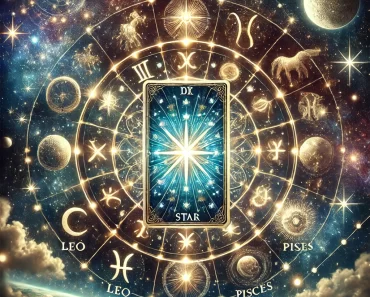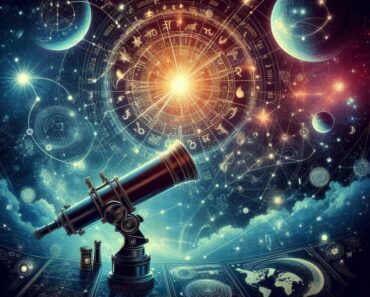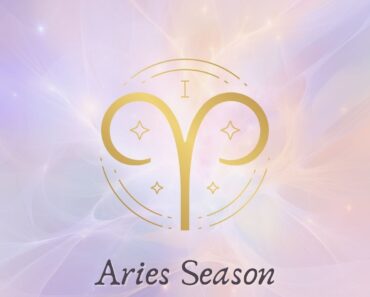Outline
Common Astrology Misconceptions
- Astrology is the Same as Astronomy
- Astrology Can Predict the Future with Certainty
- All Astrologers Are the Same
- Astrology Belongs to a Particular Religion or Culture
- Astrology Is Scientifically Proven
- The Sun Sign Alone Determines Personality
Frequently Asked Questions About Astrology
Introduction
Astrology has fascinated and intrigued humans for centuries, offering insights into personality traits, relationships, and even predicting future events. This ancient practice, deeply rooted in the belief that celestial bodies influence human behavior and destiny, has evolved over time. In this article, we will delve into the world of astrology, exploring its history, principles, and common misconceptions. So, sit back, relax, and embark on a celestial journey with us!
What Is Astrology Exactly?
Astrology is the study of the movements and positions of celestial bodies, such as the sun, moon, planets, and stars, and their influence on human affairs and the natural world. It is based on the belief that these celestial entities can reveal information about an individual’s personality, relationships, and future events.
The Origins of Astrology
Astrology has a rich history that spans thousands of years. It originated in ancient civilizations such as Mesopotamia, Egypt, and Greece, where astrologers observed the night sky and made correlations between the positions of celestial bodies and earthly events. The Babylonians, for instance, developed the zodiac, a 12-fold division of the sky, each associated with specific constellations.
How Does Astrology Work?
Astrology operates on the principle that celestial bodies emit energy or vibrations that can affect human life. Each celestial body represents different aspects of an individual’s personality and life experiences. By mapping the positions of these celestial bodies at the time of birth, astrologers create a birth chart, also known as a natal chart or horoscope, which serves as a unique cosmic fingerprint for each person.
Common Astrology Misconceptions
Despite its popularity, astrology is often misunderstood. Let’s dispel some common misconceptions surrounding this ancient practice:
-
Astrology is the Same as Astronomy
Contrary to popular belief, astrology and astronomy are not the same. Astronomy is a scientific discipline that focuses on studying celestial objects and the universe as a whole, while astrology deals with the interpretation of celestial bodies’ influence on human life.
-
Astrology Can Predict the Future with Certainty
Astrology provides insights and possibilities, but it does not offer definitive predictions. The positions of celestial bodies at birth provide a framework for potential outcomes, but personal choices and free will can ultimately shape an individual’s path.
-
All Astrologers Are the Same
Astrology encompasses various traditions and approaches. Astrologers may follow different techniques and interpretations, so it’s essential to find one that resonates with you.
-
Astrology Belongs to a Particular Religion or Culture
Astrology has been practiced in numerous cultures throughout history, including Hindu, Chinese, and Western astrology. It transcends specific religious or cultural boundaries.
-
Astrology Is Scientifically Proven
Astrology is not recognized as a scientific discipline by the scientific community. It is considered a pseudoscience, as its claims are difficult to test using the scientific method.
-
The Sun Sign Alone Determines Personality
While the Sun sign, determined by the position of the Sun at the time of birth, is significant, it is only one element of a comprehensive birth chart. Other planetary positions and aspects contribute to a person’s personality and life experiences.
Conclusion
Astrology continues to captivate and inspire people around the world. It provides a unique lens through which individuals can explore their personalities, relationships, and life paths. Whether you approach astrology with skepticism or curiosity, it offers a fascinating perspective on the interconnectedness of the cosmos and human existence.
Frequently Asked Questions About Astrology
Q 1: Can astrology accurately predict my future?
A: Astrology offers insights into potential future outcomes based on celestial positions at the time of birth. However, personal choices and free will also play a significant role in shaping one’s destiny.
Q 2: What are the different types of astrology?
A: There are various types of astrology practiced worldwide, including Western astrology, Vedic astrology, Chinese astrology, and more. Each has its own unique methods and interpretations.
Q 3: How accurate are horoscopes in magazines or newspapers?
A: Generic horoscopes found in magazines or newspapers are not tailored to individuals. They provide generalized predictions based on the Sun sign alone, lacking the depth and specificity of a personal birth chart.
Q 4: Can astrology help in relationships?
A: Astrology can provide insights into compatibility and potential challenges in relationships. Understanding each other’s birth charts can foster better communication and empathy.
Q 5: Can astrology be used for career guidance?
A: Astrology can offer valuable insights into an individual’s strengths, talents, and potential career paths. However, it should not be the sole determinant of career choices.
Q 6: Is astrology solely based on superstition?
A: While astrology has roots in ancient beliefs, many practitioners approach it as a tool for self-reflection, personal growth, and understanding the connections between celestial and earthly phenomena.






